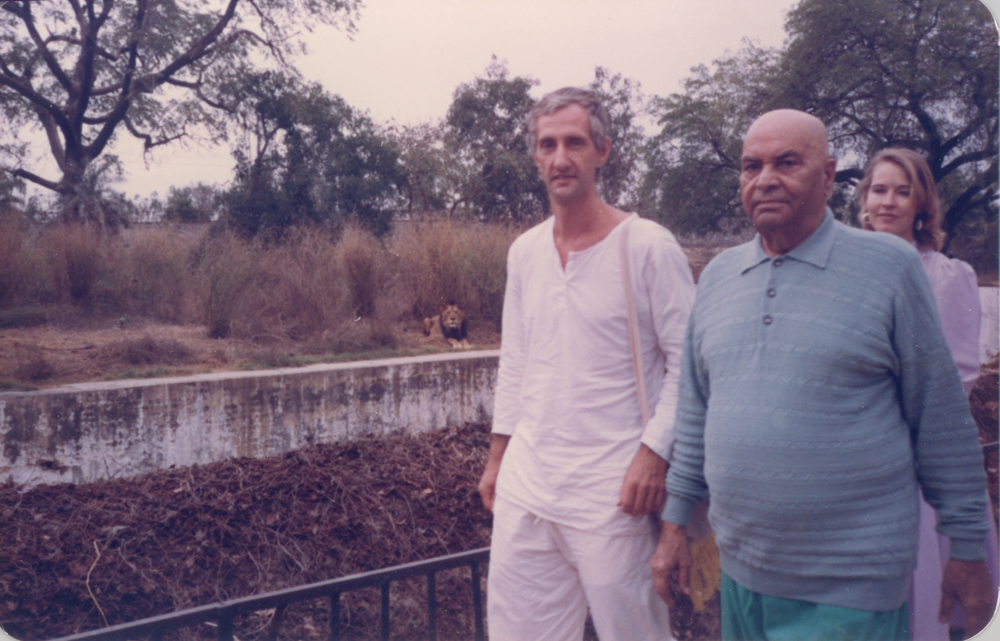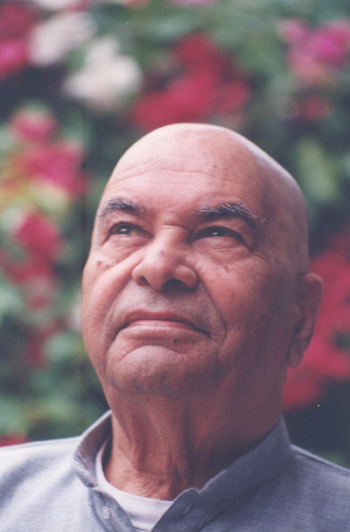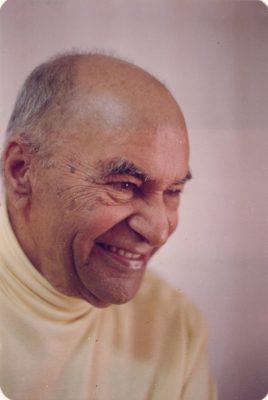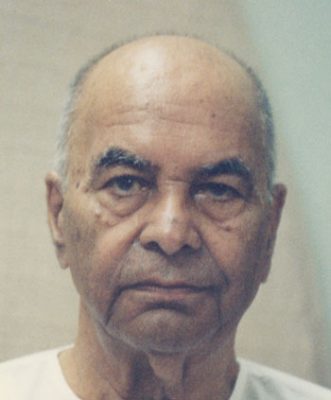
David: Can no-mind become mind again? Can it come out? Can it become manifest?
Papaji: A process has taken place. Now there is consciousness itself. Why to speak of mind and no-mind?
In ancient times, when a king died without leaving an heir, a royal elephant was sent out to select the new king. There was a tradition that whoever the elephant picked up and put on his back became the new king. One time when this happened, the elephant picked up a beggar, and this beggar became king. Everyone was happy. The ministers saluted him, gave him golden robes, and put him on the throne. This man who used to be a beggar didn’t have to do anything any more. Everything was done for him. Everything came to him without his asking. All the courtiers and ministers knew how to attend on him. He didn’t need to beg anymore. At the appropriate time during the day, food would be brought to him, and during the night all the queens took care of him. Once a beggar has had a taste of being the king, will he want to go back to his village and be a beggar again?
This is what happens when you become aware that you are consciousness. The person is still there, the body is still there, but there is no one who thinks, ‘I have to do this or that’. There is instead a knowledge that consciousness takes care of everything. If you are consciousness, the king, the five senses become the ministers who serve you. The sense activities will go on automatically, you will not have to think about them. If it is time for the king to have a pan [laughter], pan will come. If it is time for coffee, coffee will come.
When you are consciousness, the brain will become the prime minister, the sense organs will become ministers, and they will all serve you. You will not have to think at all.
If you want this to work, you must have the authority and power of a real king. If you behave like a king, without having the authority, no one will listen to you. Authority must be there, and this authority can only come by being consciousness itself.
I will tell you a good story about another king. This king wanted to see his prime minister urgently. Since the prime minister was not in the palace at the time, the king went to see him in his home.
On his arrival the king was told by the prime minister’s wife, ‘He is in the puja room’.
‘Then call him,’ said the king.
‘I can’t call him,’ replied the wife. ‘I am not allowed to disturb him while he is in his puja room.’
The prime minister, though, had heard the king arrive.
He came out of his puja room in his puja dress, so the king asked him, ‘What are you doing?’ The prime minister didn’t give any reply.
This made the king very angry because he saw it as a gross act of insubordination. The king called one of his police officers and ordered him to arrest the prime minister. The police officer stepped forward, but before he could make the arrest, the prime minister said, ‘Wait, wait’. The king signalled the policeman to stop and then waited for the prime minister to give an explanation. Instead, much to everyone’s surprise, the prime minister pointed at the king and ordered the policeman to arrest him. The policeman, of course, didn’t move, because he had no authority to arrest the king. Then the prime minister explained his actions to the king.
‘When you said “Arrest him,” the policeman carried out your order because you have the authority to give such an order. But when I said, “Arrest him,” the policeman didn’t obey because I have no authority over you. The order was the same in each case, but the authority was different. You had the authority. I did not.
‘I didn’t reply to you when you came in because I was doing the gayatri mantra. I could not tell you about this mantra because you have not been initiated into it. I myself do not have the authority to tell you about this mantra, so I kept quiet.’
So, if you want to have the authority of the king, you must be consciousness itself. Then the senses will obey you. Everything will be beautiful because all commands will come from consciousness. Kings can make mistakes, but consciousness always makes the right decision at the right time. When you have no-mind, you cannot do any work of your own accord. You are simply being graced. And you are obeying. You yourself are not doing anything because doership has gone. Mind is no more there. All the various functions of the mind are no longer there. You will stay with the body for a stipulated period that has already been decided, and during that time you will be an instrument of consciousness.
Some people cannot stand the shock of freedom for more than twenty-one days. That has been stated in the books. Imagine a man who unexpectedly wins a billion dollars in a lottery. The shock of so much wealth suddenly coming might kill him. He could get a heart attack and die.
It is sometimes the same with enlightenment. So much happiness coming suddenly and unexpectedly can take away the body. But the enlightenment will not be affected.
Some people live on after enlightenment only to benefit other people. This benefit is not coming from some ‘person’, it is coming directly from consciousness. The teacher, who is consciousness, knows that it is not ‘I’ who is working. His attitude is: ‘I have been picked out to speak, but it is not “I” who speak.’ If the teacher thinks that ‘he’ is speaking, this is only arrogance. His words will not work.
When you have that direct experience, it’s of no concern to you what you say. It’s not your problem if someone is benefited or not benefited, nor if people come or don’t come. It’s all the same to you.
David: So consciousness has ordered you to teach. Is that what you are saying?
Papaji: Consciousness … ?
David: Has ordered you to teach. Is that what you are saying? You are just carrying out the order.
Papaji: [Long pause] Consciousness and me – we have become so much one, I cannot say if ‘it’ can order ‘me’.
David: But some power is compelling you to give satsang, yes?

Papaji: Yes, ‘some power’ is like this: [stretches out his hand in front of him] if I want to drink water do I say, ‘Poonjaji, pick up the glass’? Before I put it in the mouth, do I say to my hand, ‘Put it in the mouth’? And before I drink, do I give the order, ‘Drink’? [Papaji laughs, picks up the tumbler and drinks.] Now, I have not commanded the hand. It’s all me, you see. People who are benefited are not ‘others’. The hand is my own, the stomach is my own and the requirement for water is my own. Who are the others? Who is other than me?
Who, first of all, is ignorant? If people say so, I don’t believe them. Who wants to be free? If someone tells me this, I don’t believe him. Who is not already free?
So, when people come to me and say, ‘I am in trouble, I am bound,’ I think they are joking, so I joke back, ‘You are not bound, you are free’.
‘Does it take a long time?’ they ask.
‘No, no,’ I say. ‘You can get it now itself.’
All this is a joke, so I take it as a joke. The statement, ‘I am a bound,’ is it not a joke? The people who speak like this don’t show me the chains, nor the fetters, nor the prison. What kind of jail is this? So it’s all a big joke to me, and I enjoy the joke.
David: So when you look at people in satsang, Papaji, you only see enlightened people who are pretending not to be enlightened?
Papaji: [Long pause] Oh, it’s a difficult question, but I have to answer it because I answer all questions. First of all, I absorb them all and give them a seat in my Heart, in my Heart. As the lover gives a seat to the beloved in his Heart, you are always seated in my Heart. So I open here and say, ‘You and I, we will speak together. Yes. You are not apart from me, you are within the Heart. You are in my Heart. Let us speak.’
David: Grace is working in satsang, Papaji. Does it come from you, through you, or is it simply just there?
Papaji: From grace only. Grace has to come from grace, no? A wave has to come from the ocean. Grace has to come from grace, the ocean of grace.
David: It seems to flow very strongly in your proximity, though.
Papaji: I don’t know.
David: Papaji, I’ve heard you say several times, ‘I know many tricks to wake people up. If one doesn’t work, I use another.’ What are these tricks, and how do you use them?
Papaji: One trick is, ‘Keep quiet! Keep quiet!’ The second trick is ‘Don’t think at all’. The third trick is, ‘Don’t activate your mind’. If these don’t work I have a fourth trick. I say, ‘Come to me and I will teach you yoga. I will teach you how to do shirshasana [a yogic position with the head on the floor and the feet in the air]’.
I make them stand in front of me and then I say, ‘Now, head down, feet up in the air, this is shirshasana’. I know how to do it myself, so I can easily show them. Then, while they are standing on their heads, they will say, ‘But I want freedom’.
While they are still in that posture I will tell them how to gain freedom. I will say, ‘Keep quiet, keep quiet’.
At that time they will listen because by then they will be suffering a little. When people start to have trouble through over-indulgence in sensory pleasures, they come to me, and they listen. If anyone is upside down for long enough, they begin to suffer, and once they begin to be aware of their suffering, they come to me. So, I know many tricks and I have often used them in the West.

Mostly good people are coming to see me in Lucknow. I have no problem with them. People from all over the world are coming to India and Lucknow for the first time, and I am very happy with them. When I speak to them, they listen to me. They listen to me as they would to their father, or to any other respected person who gives good advice. They want to end their suffering, their mental pain. So I give them this trick: I tell them to be quiet. Most people like this advice very much because I am not asking them to do anything. They get happiness and peace by doing nothing, by simply being quiet.
Who doesn’t want happiness? Who doesn’t want peace? Who doesn’t want beauty? Everyone is interested. So they listen to me and I am happy. Everyone is benefited.
They all return to their respective countries as ambassadors from this city of Lucknow. And then they send their friends. Thousands of people have come here simply because they have heard good reports from other people.
No one complains about what is going on here. There are no charges, there is no ashram, there are no big appeals for funds. I live in my own house and I belong to this place. For fifty years I have been living here. I have also spent a few years living abroad. I like travelling but now my old age has compelled me to stay here. That’s why you are here. Until recently I used to visit people in their own houses. I didn’t like to trouble anyone, you see.
So now many people are here and I am very happy that some message of peace is being spread. We need it very badly.
Two thousand six hundred years ago it was India which sent messengers of peace all over the world in the persons of Mahendra and Mitra. The Emperor Ashoka’s own son and daughter were sent out as emissaries. Other people went to China, Japan and Korea on the same mission. There was tremendous peace in the world at that time. So let us resolve again to send out this message of peace, and let us send it from the same place. The Buddha belongs to this state. I am very happy that the message of peace is being sent out once again from the place where the Buddha lived. Many tourists now come to this state to visit the holy places which are associated with the Buddha’s life. They visit places like Kushinagar, Siddharthanagar and Lumbini. All of these places have become holy because of one man who spread a message of peace from here.
You can have peace in the world by enlightening yourself. This enlightenment itself is a message. When you go back to your own country you may speak, or you may keep quiet. It will work, you will see. When your friends ask you, ‘What happened?’ you can keep quiet. Again they will ask you. Just keep quiet, that’s all you need to do.
David: Papaji, many people have heard you say, ‘I have not given my final teachings to anyone’. What are these final teachings, and why you are not giving them out?
Papaji: They are not worthy of them. Nobody is worthy to receive them. Because it has been my experience that everybody has proved arrogant and egotistic. This has resulted in suffering. Many people are suffering. Nowadays, I am making another trial. I will see what happens.
I don’t think that anyone is worthy to receive them. You have to prove holiness to be worthy. Why should you trouble people instead of helping them? This is arrogance, you see.
If a king sends a messenger to another country, his only job is to deliver the message. I sent a messenger to the West, but he tried to become a king. Many people have been troubled by this. I have seen it in many cases. What to do? This kind of behaviour demonstrates unworthiness.
Perhaps I am too generous, perhaps I do not read people properly. Maybe it is my mistake because I think that everyone is good. Though I speak the Truth to everyone, the Truth will reject those who are not worthy of it. Only a holy person can receive this teaching. Such a person will be worthy of it.
If the worthiness is not there, the Truth will enter their head and become intellectual knowledge. Westerners want intellectual understanding. They are very happy when they understand. That’s all the West wants: knowledge through the intellect. Everyone knows that there is something ‘beyond’. But when I talk about it the Westerners say, ‘I don’t understand, I don’t understand’. So I say to them, ‘You don’t need to understand at all’.
I had a friend who lived in Paris. He had been a follower of J. Krishnamurti for thirty-five years. He used to travel around the world, following Krishnamurti wherever he went: Australia, New Zealand, Switzerland, England. He had read and studied all the books.
He came to me in Saanen and I talked to him for some time.
After he had listened he said, ‘I don’t understand, I don’t understand’.
I told him, ‘You are not to understand this. This is not something to be understood. You have to be it.’
He disagreed. ‘No, no. I have to understand. I don’t understand you and I don’t understand Krishnamurti either.’
I told him, ‘You don’t need to understand either Krishnamurti or me’.
Then he explained to me why he was having so much trouble with Krishnamurti.
‘I am at point A and Krishnamurti is at point B. But when I shift my perspective from A to B, he moves to point C. So, I don’t even understand Krishnaji.’
Krishnamurti was also in Saanen at that time, so a lot of his followers used to come and see me.
One day a man came and started talking: ‘Poonjaji and Krishnaji are saying the same thing. Krishnaji says, “Remove all concepts from the mind,” and Poonjaji is saying the same. They are both saying, “Unless you empty the pot of the mind, you cannot be enlightened”.’
One man who was listening, he was a follower of Krishnamurti, disputed this statement.
He said, ‘No, no, there is a big difference between Poonjaji’s and Krishnaji’s teachings. Krishnaji teaches us to empty the pot, Poonjaji teaches us to break the pot.’
That is the difference, and this is something that cannot be understood with the mind. You can understand when the cup is full, or when the cup is empty, but when the cup does not exist, who are you, and what are you going to understand? So what I say is, ‘Mind itself does not exist, so you don’t need to understand’. You have to see it and feel it when I speak. Thinking will not help you.
Mind itself is only a notion. Get rid of this notion. And mind is past, so get rid of the past also. Come to the present and then I will tell you what to do next. Come to at least the present and you will see.
David: Papaji, many people come to satsang and they have waking-up experiences. Some of them come back weeks or months later and say, ‘I lost it’. What is happening there?
Papaji: Again, this is unworthiness.
David: Most of the time you blame these people for losing it. You tell them, ‘It’s your fault’.

Papaji: Yes, yes. They lost it because they did not take good care of it. I tell these people, ‘If I give you a big diamond, you can live off it for the rest of your life. You can sell it and get millions of dollars for it. If, instead, you don’t recognise its worth and you give it away, whose fault is it? If you give it to a fisherwoman who uses it to balance her scales, because she doesn’t know what it’s worth, whose fault is it?’
This enlightenment is a diamond. It should not be passed on to unworthy people who will misuse it. And they do misuse it. I don’t differentiate between all the people who come to me. I tell them all the same truth. Some get it and then they throw it away by misusing it.
They come back and say things like, ‘My girl friend left me. I phoned her and she came back. Now I am happy again.’ Is this freedom? Next time they will tell me, ‘I went back, but she left me again. Now I am in trouble again.’ Every day I hear stories like this.
David: Papaji, when people leave you, you never tell them, ‘Take care of this diamond I’ve given you. Look after it.’ You only blame them for having lost it when they come back.
Papaji: Not all of them lose it. Some of them are very beautiful people. They write to me and say, ‘I am keeping it. I am still keeping this precious gift. Not only am I keeping it, I am distributing it to others. Even after distributing it, I see that the same amount is still with me. It doesn’t decrease. What a gift you have given me!’ Not all of them lose it. Although I want everyone to be benefited by this thing, I also know that not everyone can get it. Even so, the results here are very good. I look at other ashrams and see what is going on there. Compared to them, the results we are getting here are quite satisfactory. I am very satisfied.
David: One final question, Papaji. All your life you have been trying to express your own inner experience. Will you please make one more attempt for us. Who are you? What are you? What is your own experience of your Self?
Papaji: A very easy reply is: ‘I am your own Self.’ I am your own Self, and this is Truth. How can it be that I am myself only? I am your own Self and the Self of all the beings that exist and that have to exist.